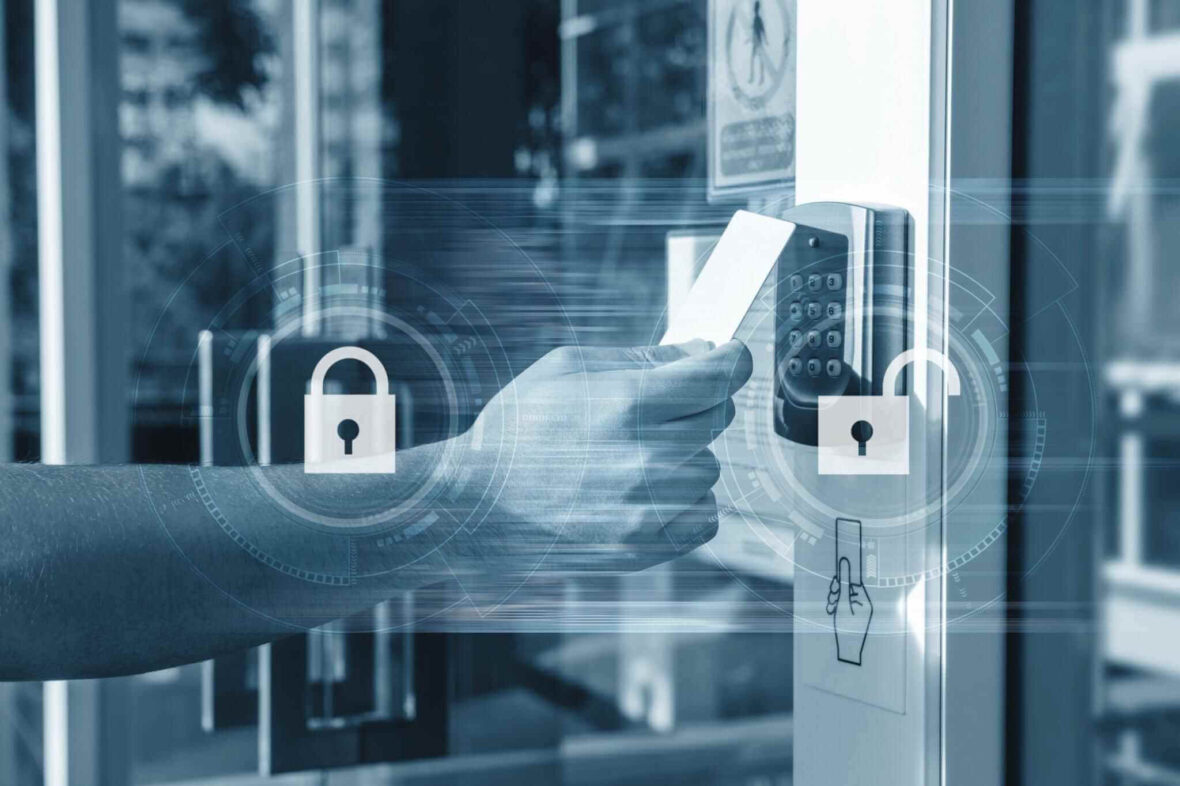Protecting your business is a top priority, and one of the most effective ways to secure your assets is by implementing an access control system. Access control security provides oversight into who enters and exits your building while controlling what they can do within it.
With access control systems, you can restrict or allow certain activities in specific areas, reinforcing safety protocols for employees and customers. Read more about incorporating access control technology into your corporate security plan.
Contents
1. Improves Internal Security
Access control systems have proved to be a highly effective tool in improving internal security for many businesses. With a layer of regulation in place, organizations can limit that allowed access to the building and its corresponding areas. This protects the premises from any unwelcome visits from outsiders and allows administrators complete control over who is coming and going at any given time.
Moreover, access control systems can be used to limit staff-level access to areas that may contain sensitive materials or confidential documents. In this way, businesses can ensure that their proprietary information is safe and secure.
2. Enhances Security And Safety Measures

Access control systems are increasingly being used to ensure safety and security on the premises. Access control readers, such as RFID or biometric scanners, limit access to certain areas based on pre-assigned privileges. These offer greater control over who is entering key areas and can also be used successfully to thwart unauthorized entrance and reduce the risk of damage to goods, property, or people.
Additionally, they can record information securely in an audit trail, allowing more significant insights into activities inside the premises. Thus, access control systems are invaluable for businesses that want to ensure their staff, visitors, and assets remain safe and secure.
3. Increases Efficiency And Enhances Productivity
Access control systems are invaluable, enabling businesses to increase efficiency and productivity. This is achieved by limiting access to certain areas of the facility, resources, or even equipment so that employees can only access what is necessary for their roles.
Access control systems streamline workflows and reduce administrative time spent on granting and revoking access as it is done with a few simple clicks rather than lengthy paper procedures. As a result, businesses gain more productivity in return for their investments in access control systems.
4. Supports Regulatory Compliance
Staying compliant with regulations is an essential responsibility for businesses in many industries. It can involve various activities, such as adhering to data protection standards, monitoring employee activity, and having access control systems that appropriately limit access rights. Access control systems provide peace of mind that only those entitled to view sensitive information are allowed access, ensuring that organizations stay compliant.
Such systems also address auditing and non-repudiation on access points, creating a secure environment to protect potential risks such as unauthorized use. As part of their regulatory compliance policies, organizations should ensure that these systems are in place to safeguard against any mishaps or breaches of standards.
5. Reduces Costs
Installing an access control system reduces business capital costs and can yield cost savings in terms of ongoing operations. Utilizing such technology provides a low-cost solution to secure your premises, which benefits your business and its patrons in terms of safety, security, and convenience.
By deploying the right access control system – such as utilizing credentials like ID cards or biometrics- establishments can ensure that their facility is accessible only by people authorized to enter, thereby providing higher levels of protection against intrusion.
Additionally, access control systems help lower operational costs due to their automatically tracked logs; users are far less likely to lose or forget credentials when they are issued electronically or via biometrics. This yields more significant cost savings due to the hassle and expense of replacing lost keys or credentials.
In Conclusion
Access control systems provide businesses with access to a range of security measures. Not only do access control readers, such as RFID or biometric scanners, help reduce the risk of damage to goods, property, or people and support regulatory compliance, but they can also contribute towards cost savings and an improved workflow. Access control is paramount for any successful business to ensure safety and security on the premises.
Organizations should consider investing in access control systems that will safeguard their staff, visitors, and assets. By implementing access control systems into your company’s operations, you will be able to benefit from heightened security protocols and efficiency gains that will positively impact your bottom line without the need for costly investments.




